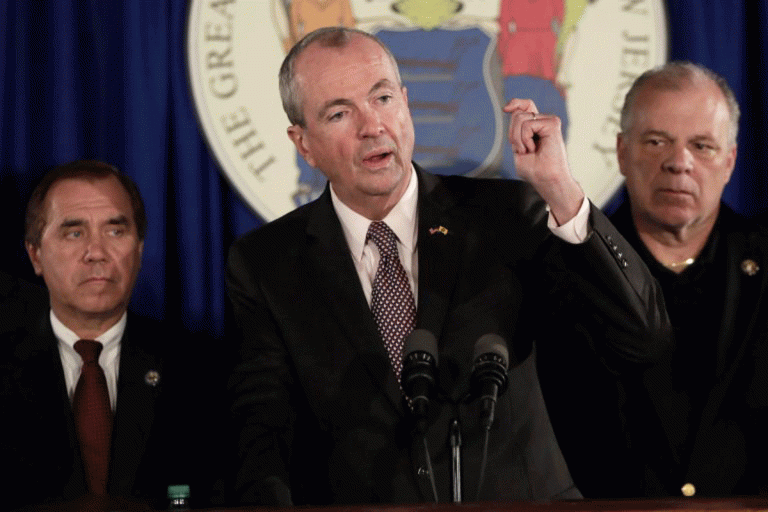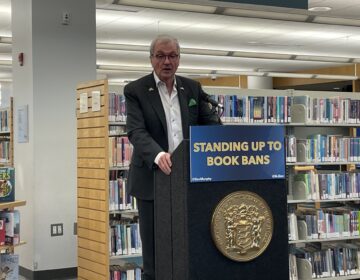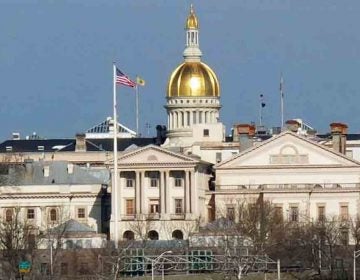New Jersey governor, lawmakers reach deal on $15 minimum wage
New Jersey lawmakers have reached a deal to raise the current rate from $8.85 to $10 by July 1, then increasing it by $1 a year until reaching $15 in 2024.

New Jersey Gov. Phil Murphy (Julio Cortez/AP Photo)
New Jersey Gov. Phil Murphy and the Democratic leaders of the Legislature said Thursday they’ve reached a deal to raise the state’s minimum wage to $15 an hour by 2024.
The proposal announced by Murphy, Assembly Speaker Craig Coughlin and Senate President Steve Sweeney would raise the current rate from $8.85 to $10 by July 1, climbing by $1 a year until reaching $15 in 2024.
The agreement represents the fulfillment of a major Murphy campaign promise that eluded him during his first year, despite full Democratic control in the state.
Murphy says the deal is “historic” and will help about 1 million residents.
“No one working a full-time job should ever live in poverty. Putting the minimum wage on a clear and responsible path to $15/hour is good for workers, good for our businesses and good for our economy,” the sophomore governor and former Wall Street executive said in a statement.
New Jersey would join a handful of states, including California, Massachusetts and New York, in phasing in a $15 hourly wage.
The higher wage was a top priority among the state’s influential progressive groups, who have been pushing the issue for years. In 2016, former Republican Gov. Chris Christie vetoed legislation phasing in a higher wage.
Part of the delay stemmed from behind-closed-door discussions over special exemptions for the higher wage. The Thursday deal includes a few of those so-called carve-outs.
Farm workers, for example, will see their minimum wage climb to just $12.50 an hour over five years. Seasonal workers and small businesses with five people or fewer would see their minimum wages reach $15 an hour by 2026.
Sweeney called the plan “progressive” and said it puts the state on the forefront of a “national movement.” Coughlin pointed out that the deal accommodates small businesses.
The news of a deal was met with mixed reactions. The left-leaning think tank New Jersey Policy Perspective called the deal one of the most consequential in state history.
“The positive impact of this increase will reverberate throughout the economy as workers will immediately have more disposable income to spend in their local communities,” said Brandon McKoy, the group’s director of government and public affairs.
The New Jersey Business and Industry Association, which has opposed minimum wage hikes, criticized the deal.
“Today’s announcement is another hit to small businesses who are absorbing cumulative costs in the form of new mandates, more subsidies for energy delivery and increased taxes as a means to balance the state budget,” the group said in a statement.
New Jersey’s current rate stems from a 2013 constitutional amendment that raised the rate from $7.25 to $8.25, and thereafter according to inflation.
It’s unclear when the agreement would get a vote in the Legislature, where Democrats control both chambers.
WHYY is your source for fact-based, in-depth journalism and information. As a nonprofit organization, we rely on financial support from readers like you. Please give today.




